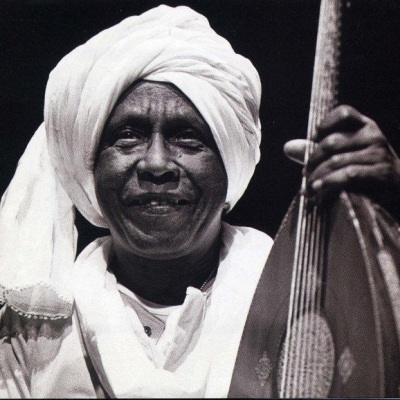
Hamza El Din - Escalay (The Water Wheel)
by Stewart MasonAn album of Northern African music played on the oud (a fretless, long-necked string instrument that's the predecessor of the European lute, common in North African and Middle Eastern music), 1971's Escalay: The Water Wheel is not only the most popular album by the Nubian-born soloist Hamza El Din, it's arguably the best-known album of traditional Egyptian folk music in the west, thanks to its position as one of the early releases in the hugely popular Nonesuch Explorer series. Side one, a remarkable 21-and-a-half-minute composition, is a tone poem built on one subtly pulsing drone that rises and falls continually, creating hypnotic layers of harmonics occasionally broken by El Din's wordless calls. Some American minimalist composers, particularly Steve Reich, have claimed a strong influence in their own music from traditional North African styles; for a listener familiar with the minimalists' work, "The Water Wheel" makes the connection plain. Side two consists of two shorter pieces, the enchantingly melodic "I Remember," originally written by Egyptian composer Mohammed Abdul Wahab for electric guitar but here played on the traditional oud, and the self-explanatory "Song With Tar," an original in the Nubian folk tradition on which El Din accompanies his vocals with clapping hands and the beating of a tar, a traditional tambourine-like drum native to Nubia. This is not "folk music" in the purist sense, as all three tracks are composed music, but Escalay: The Water Wheel is a fascinating document of the musical traditions of Egypt.
